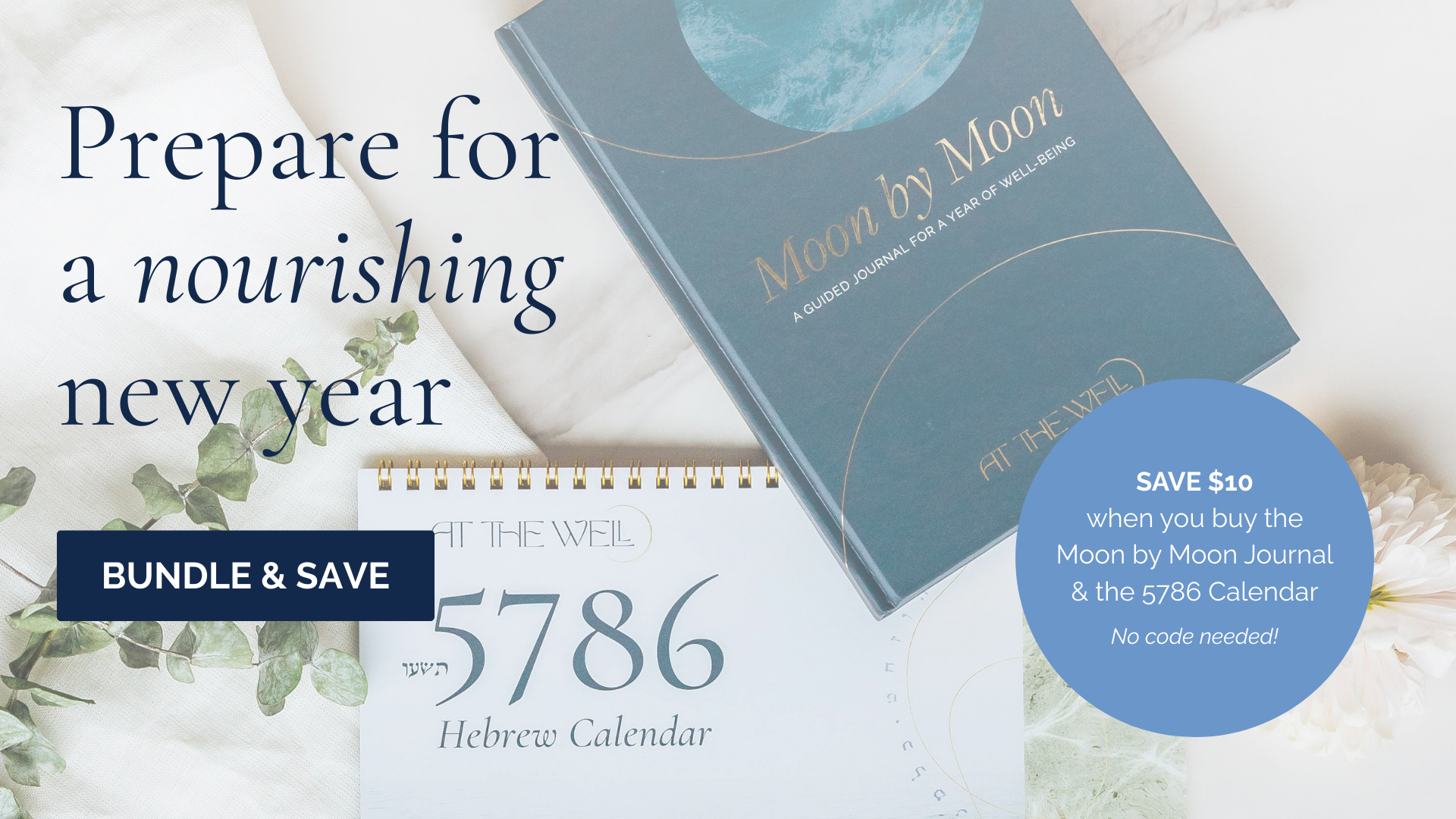What is your first memory of connecting with the earth? Which senses were activated? What scents or textures do you remember?
At age 4, I regularly crouched in the small grassy patch between the sidewalk and the steps to my family’s apartment in New Jersey, gathering, rearranging, and smushing clusters of tiny beads of mud. While I didn’t feel compelled to plop the full weight of my post-toddler physique into the dirt, I adored the sensation of the cool, delicate pieces of earth beneath my fingertips.
After over two decades, I now suspect that these enticing clumps of soil are known as vermicompost, or earthworm poop. While the internet warns against smearing this nutrient-rich soil over your body, my anecdotal experience deemed it a harmless and joyful experience.
As the mud hardened around my fingertips, I was often called inside for Shabbat dinner where I learned the ritual (and practical) significance of hand-washing. But as the earth’s crust eroded from my hands, it channeled a life of exploration that even rinsing my hands three times each in the world’s most powerful waterfalls couldn’t wash away.
Many benign fecal interactions later, I discovered that my love for nature is rooted beside my passion for Jewish culture and community — and with time, their roots intertwined underground, causing the mother plants to grow robustly side by side.
“Raise your hand if you consider the effect on the environment in 10% of the decisions you make. 25%? 50%? None of you do.”
As a young teen, I learned that enjoying the sensations of nature comes with a responsibility to protect it. Unfortunately, the message from the counselor quoted above stuck with me for the wrong reasons—shame, guilt, and fear. He, along with mainstream media at the time, insinuated that the number of menstruation products and razors that kids (girls) sent to the landfill was so harmful it might as well be the #1 greenhouse gas contributor. Fracked Natural Gas…Who?
After a week of learning, discussing, and taking action at this Jewish summer camp, we would sing “ani v’atah neshane et haolam,” meaning, “you and I will change the world.” The soul and the yearning behind this acoustic song caused me to doubt that the recipe for change consisted solely of my recommitting to grow my leg hair.
Parallel to my environmental journey, I learned about tikkun olam, a Jewish value meaning “repairing the world.” In this philosophy, the “world” refers not only to the scientific environment, but to the earth as a whole, especially human beings. This holistic view of social change differed from my counselor’s abstract and impersonal philosophy which centered on landfills, and atoms and neglected statistics of childhood asthma and mental health.
With the humanistic mentality of tikkun olam, I experienced radical empathy and community, learning how these values intersect with the Earth. I saw how truly repairing the world invites us to think about people in 100% of the decisions we make. And who does most of this work? The same kids accused of using wasteful menstruation and cosmetic products.
Many Tu B’Shvats later, Tu B’Shvat being a Jewish holiday celebrating the birthday of the trees and nature in general, I sought to assess the disconnect between humans and nature by asking my own version of a thought-provoking environmental question in my pandemic career as a 4th grade Hebrew school teacher:
“A story in the midrash, or ancient Jews’ reactions to the Torah, states that God showed the first human the trees in the Garden of Eden saying, ‘And everything that I created, I created it for you.’ Do you agree or disagree that all of nature is for us?” (Midrash Kohelet Rabbah 7:13)
For transparency purposes, I’ll divulge that the line following this excerpt is ‘Be careful not to spoil or destroy my world–for if you do, there will be nobody after you to repair it,’ but I wanted these 10-year-olds to figure this out.
They totally did. In response, a student postulated, and I’m paraphrasing, that trees were put on this earth to balance the atmosphere, contribute to ecosystem relationships, and for themselves so they can freaking thrive. She continued by declaring that, sorry Jewish Scholar, trees are most certainly not here for us. Unless we earn back their trust by exhibiting the highest degree of lovingkindness to humans, nature, and the trees all around us forever. In order for you and I to change the world, we need the empathy and humility of this student, and I believe that connecting with the earth enables this.
Did you know that the Hebrew word for ‘moon,’ yareh-ach, is one syllable away from the word for ‘odor,’ reh-ach? My mom taught me this after I showed her pictures from a rejuvenating hike that rendered me in desperate need of a shower.
Sloshing through the mud at a park just north of New York City last year, I squinted past the foliage searching for the warmly glowing orb that would be April’s supermoon. Seeing the illuminated ball of rock as big as my fist, and all its crevices, reflections, and yes, eyes, a nose, and smirk, is like rediscovering the joy of community, the harmony of song and laughter of sassy students, the vulnerability of tiny pieces of earth, and the smell of pine. Aware of these sensations, I plopped down into the mud and took out my camera.
At The Well uplifts many approaches to Jewish practice. Our community draws on ancient Jewish wisdom, sometimes adapting longstanding practices to more deeply support the well-being of women and nonbinary people. See this article’s sources below. We believe Torah (sacred teachings) are always unfolding to help answer the needs of the present moment.
Trees in Jewish Thought, My Jewish Learning
Midrash Kohelet Rabbah 7:13

